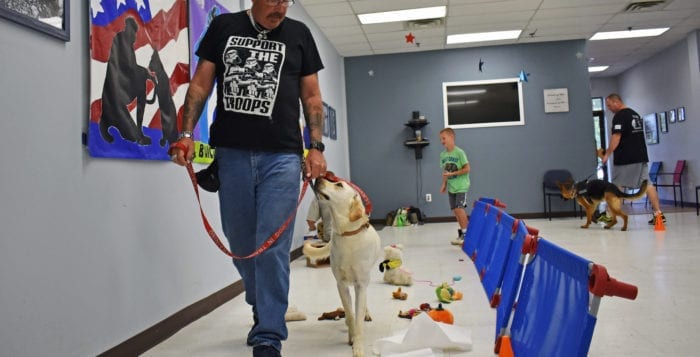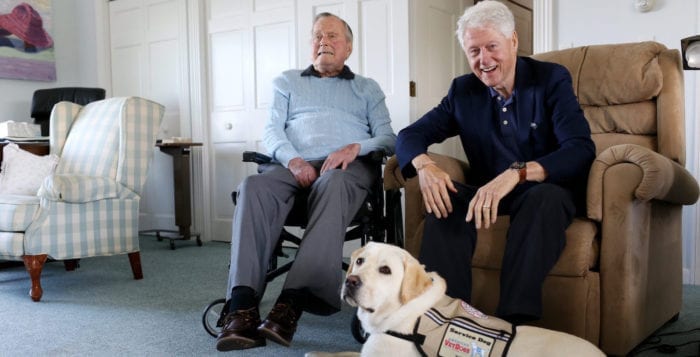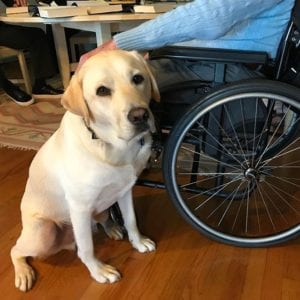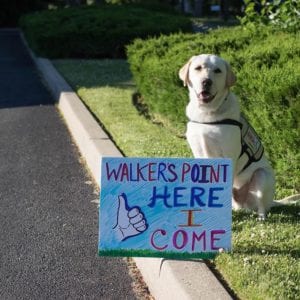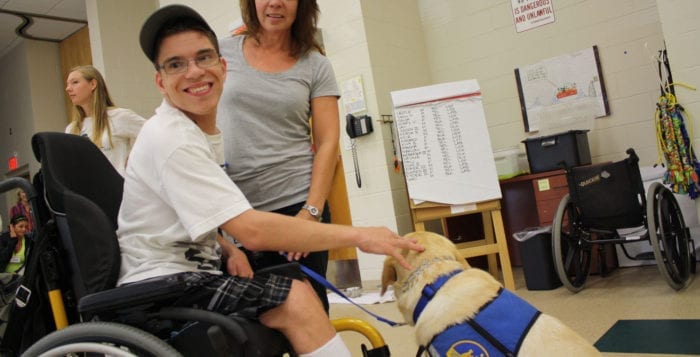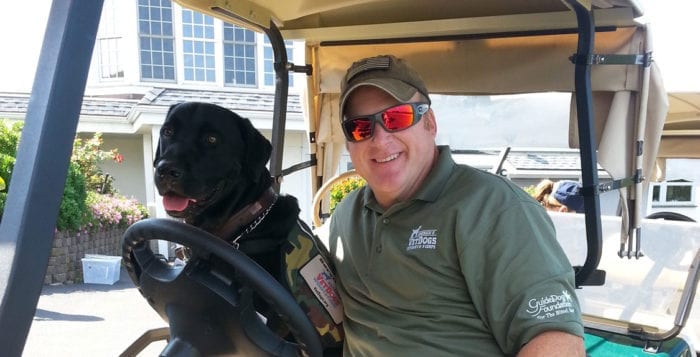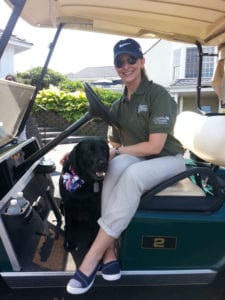Those servicemen and women who have had their dog trained at the Nesconset nonprofit Paws of War know the best companion to have when past trauma returns, is a trained service dog at their side.
“You can’t imagine how much dogs make an impact on your life,” said Frank James, a retired police officer from the Port Authority of New York and New Jersey.
James is training his dog Bailey for service dog certification through Paws of War, an organization which helps provide service dogs and train them for retired service members. The former police officer said having a service dog has helped him deal with the effects of post-traumatic stress disorder after being at the scene of the World Trade Center on 9/11.
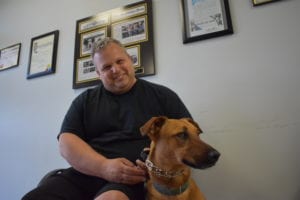
“She’s helped significantly, really significantly,” he said.
For the last five years, Paws of War has provided service dogs and emotional support dogs along with the necessary training to veterans of all stripes, from those in the armed services to former cops and emergency responders. Robert Misseri, a co-founder of Paws of War, said the nonprofit provides the training for service members entirely free of charge.
“If they are approved, we train their dog at the very least, with all behavioral training to work toward a service animal for their needs,” Misseri said.
U.S. Army veteran Russell Keyzer, of Ronkonkoma, said he got his service dog, Artemis, through Paws of War three years ago. Artemis has helped Keyzer get through the most difficult parts of his post-military life, including managing the effects of his PTSD.
“I was in really, really bad shape when I got her.” he said. “I got her at two months old, and I started training right away. Things were a lot more therapeutic on my end — to get back to that normal life.”
Keyzer said Artemis helped save him during a difficult situation at a June 22 Foreigner concert at Northwell Health at Jones Beach Theater. When the lights flashed and the music cut through the noise of the
audience, Keyzer said he started to tense up and his PTSD that has haunted him since he left the Army, started to creep into his head. He knew he couldn’t be there anymore.
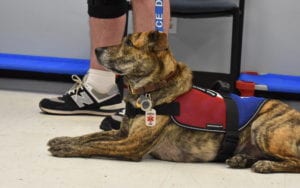
“Get me the (expletive) out of here,” Keyzer recalled saying to Artemis.
With his hand wrapped around the dog’s leash, Artemis helped guide the distraught veteran through the crowd, away from the noise and the lights, until they reached emergency medical personnel.
Suffolk County officials have come to recognize Paws of War and the work it does. On July 2, Suffolk Sheriff Errol Toulon Jr. (D) announced a 2-year-old black Labrador named Rocky to be trained by inmate Jermaine, a veteran himself diagnosed with PTSD who is currently serving time at the Suffolk County Correctional Facility in Yaphank. Jermaine will train the dog twice a week for eight weeks, before Rocky will be given to Babylon resident Harry Stolberg, a single father and Marine Corps veteran who also has PTSD.
Those interested can watch Rocky’s training live online at the website www.suffolksheriff.com with the first broadcast scheduled for July 4.
Misseri said that so many veterans have become interested in the program that the organization needs to move into a larger space. They have already picked one out — a storefront located in the same Nesconset Plaza shopping center on Smithtown Boulevard as their current home. Misseri said the new location would provide the organization with hundreds more square feet of space.
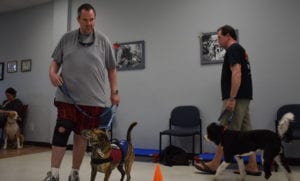
“We could really serve so many more veterans,” Misseri said. “There’s plenty of people who want to go into a class with our current space, but we can only take 10 people per lesson — in this new space we could take 30.”
Paws of War is entirely funded by donations and spends most of its money paying for dog trainers. It is seeking out volunteer plumbers, painters, electricians, carpenters, floor specialists and sign makers to help renovate the new shop.
In the meantime, veterans find hope for the future in the form of their dogs. Mark Hayward, an Army veteran who participated in Operation Desert Storm, walked his dog, Phoenix, through obstacles designed to
distract her. Every time she went through the course without turning her head, Hayward would look down and smile at her.
“It’s between night and day from before I got her in 2016 and now,” he said. “She helps me get out and do things a lot more. I named her Phoenix because, like they say, she is helping me rise from the ashes.”
Those veterans who are interested in obtaining a service dog, or individuals willing to volunteer their assistance in the organization’s upcoming move, can contact Paws of War at at 631-367-7297 or online at www.pawsofwar.org.

